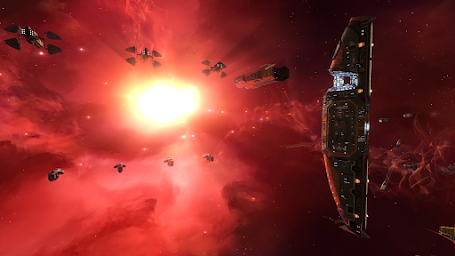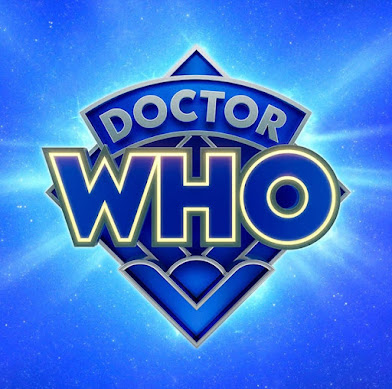In the First Age, the great elven kingdoms made war on the Dark Lord Morgoth for his theft of the Silmarils, the greatest creations of the master craftsman Fëanor. In the War of the Jewels that followed, Morgoth was defeated and the north-west of Middle-earth laid waste and sunk beneath the waves. Although Morgoth his gone, his chief lieutenant, Sauron, survived and escaped. In the Second Age, Galadriel, whose brother Finrod Sauron murdered, has spent centuries trying to track him down, whilst her friends and her king urge her to put aside her quest. But other forces are moving. The Southlands are under renewed threat from the orcs, the dwarves of Khazad-dûm have made an amazing discovery deep under the Misty Mountains and the island kingdom of Númenor has become divided between those who would help Middle-earth and those who would remain isolated.

The Rings of Power is a television series five years in the making. Back in 2017, the Tolkien Estate relented in its decades-long practice of refusing to allow further adaptations of J.R.R. Tolkien's works beyond the rights to The Hobbit and The Lord of the Rings he himself had sold back in 1969, entertaining pitches from several studios and streaming services. Having dismissed Netflix's proposal for a series of films and shows about individual characters ("MCU Middle-earth," as it appears to have been dubbed) and HBO's questionable idea of remaking the Jackson film trilogy (bold but unnecessary), they landed on Amazon's idea for a prequel series set in the Second Age of Middle-earth's history.
The Second Age is the period when the Dark Lord Sauron forged the One Ring and made war on the elven kingdoms, as well as the time of the expanding power of Númenor, the great island-empire of the western seas. It was also the height of power for the dwarves, whose great mountain kingdom of Khazad-dûm still stood strong, long before it was brought low and transformed into the shattered ruin of Moria. There is a rich vein of material here that could be mined to produce a compelling narrative.
Unfortunately, the first problem is that the Tolkien Estate did not give away any additional rights to The Silmarillion or Unfinished Tales, the two books in which about 90% of Tolkien's information and worldbuilding for the Second Age are contained. Amazon would have to proceed solely with the information they could glean from The Lord of the Rings and its appendices, which is distinctly lacking in comparison (the show occasionally uses isolated material from elsewhere in Tolkien's notes, and it's interesting that this has never been explained).
The other problem is that Tolkien did not ever write a novel about the Second Age. He did write histories, essays and lineages, not to mention an incomplete novella (Aldarion and Erendis, which again Amazon did not have the rights to) and answered dozens of letters expanding on reader questions about the time period, but there is certainly no analogue of The Lord of the Rings or even The Hobbit for the period. This meant that the writers would have to create most of the characters, dialogue, subplots and events themselves, with not much Tolkien material to fall upon, as opposed to the Jackson movies which transposed many entire Tolkien speeches to the screen verbatim.
The result is a show which is almost good, with frustrating glimpses of greatness that could have been reached with better access to the source material and better writing. The actors are all pretty solid, the ideas are often surprisingly good but the execution leaves much to be desired.
The show breaks its large story up into different subplots. We follow one storyline with Galadriel as our major POV character, as she goes hunting for Sauron, sets sail across the ocean, arrives on the island of Númenor and tries to forge an alliance. In a second storyline we visit the Southlands, which are divided between watchful elven guardians and resentful human villagers, as they are suddenly accosted by orcs. In a third, a mysterious stranger arrives in Middle-earth on a roaring star and befriends the Harfoots, a tribe of what will one day be called the Hobbits. In a fourth, the elf lord Elrond sets out to ally with the dwarves of Khazad-dûm to help create a forge for the elven master smith Celebrimbor, and gets embroiled in politics and mysteries within the kingdom.

The problem is that the show doesn't have enough time to explore all of these elements in depth. Eight episodes, even with several that cross the hour barrier, mean that many of the storylines have to be skimmed over, with superficial action replacing deep-rooted character exploration. There are some exceptions, such as the delightful "bromance" between Elrond and Prince Durin, but these are few and far between. Some elements, such as Galadriel's characterisation, are treated poorly. Galadriel is many thousands of years old at this juncture, a respected leader of the Noldor elves and a veteran of the wars against Sauron and Morgoth. Yet she is constantly belittled, marginalised and ignored, and her actions are often inexplicably arrogant, childish and violent, and sometimes self-contradictory. Perhaps if this was the story of the still-young Galadriel making her way to Middle-earth during the War of the Jewels, this characterisation would make more sense, but here it does not.
The pacing problem also extends to entire storylines: we spend three entire episodes building up to a significant battle sequence, with plenty of longueurs, but barely ten minutes on the forging of the actual first Rings of Power and the motivation for doing so (y'know, the title and point of the entire show). The show also expands a vast amount of time on playing musical chairs with mysterious characters, any one of whom might be Sauron or Gandalf (or another Wizard), which will be redundant the second the final episode airs and we get the answers to those mysteries.
The show also suffers from the decision to collapse two separate time periods - the forging of the One Ring and the diminishing of Númenor - into just a few years. Númenor is therefore somehow an isolationist, almost paranoid kingdom with no interest in affairs in Middle-earth but also has colonies and trade with the rest of the world to make it rich. The orcs are both a scattered, decimated people but also a numerous and imminent threat to the rest of the continent. It doesn't really make sense and the story would have been better-served by keeping to the original timeline, or at least compressing things into two time-frames with a single time-jump of 1800 years or so mid-series. This would have also had the beneficial side-effect of keeping the show more tightly focused on smaller casts of characters at a time, and giving more depth and weight to events.
Once you get over those problems - and they are not insignificant - there are some things to enjoy. The actors mostly give their all, and Morfydd Clark has impressive grace and presence as Galadriel even if her storyline and characterisation doesn't always make sense. The storyline with the dwarves is excellent, the highlight of the season, rooted in superb performances by Robert Aramayo (Elrond), Owain Arthur (Prince Durin), Sophia Nomvete (Disa) and an underused Peter Mullan (King Durin III). The storyline with the Harfoots is also surprisingly effective. I was expecting this to be awful, but the characterisation and worldbuilding of the Harfoots as a nomadic people worked quite well, and Markella Kavenagh gives a solid performance as lead Harfoot Nori. Having Hobbits crowbarred into a story where they don't really belong still feels jarring, but this is a good example of good execution making up for a poor idea (the reverse of most of the season).
Production design is mostly excellent, although both costumes and CGI can be variable. Some of the CG is very good but there's also a lot of the horribly overlit, plastic-looking CG which has come to plague the modern industry. Fans of Peter Jackson's miniatures and bigatures will find themselves wishing for more tangible, three-dimensional locations. They will also probably find themselves wishing for better use of the real vistas of New Zealand. Filming in New Zealand is a huge draw of the project, but scenes shot purely on location are relatively few and far between, with most nature shots involving CGI overlays and compositing to the point that there's almost no point to them being in New Zealand anyway (presumably why Season 2 has moved production to the UK instead), which is a crying shame.
There are other highlights: Joseph Mawle (Game of Thrones) is outstanding as the orc leader Adar, Bear McCreary's score is excellent (even if Howard Shore's main theme is forgettable) and some of the shots and depictions of events better-explored in The Silmarillion, like the epic battles of the War of the Jewels and the two Trees of Light standing over Valinor, are fantastic. The prosthetics and makeup for the orcs are also terrific, and a huge improvement over the abominable CGI orcs from the Hobbit trilogy. There is a sense of scale to events which does impress.
But the show's highlights are let down by its problems. The plotting is spotty and some of the Plot Macguffins are inexplicable (how does a sword hilt function as a key to release water to detonate a lava-bomb again? Who designed this thing, and when?). The pacing is too slow in some episodes and too fast in others. And all too often the writers would have benefitted from sticking closer to Tolkien's source material instead of running off to pull some weird new idea from the ether that doesn't work, at all. And we are long, long past the point that prequels need to just stop putting characters in jeopardy when we 100% know they are just fine and will be back later on.
The debut season of The Rings of Power (***) is certainly watchable, with some great performances, some excellent individual storylines and some tremendous production design and music. It is also variably-paced, has highly variable effects and the story and character arcs don't always make a lot of sense. But there are some good ideas here and the pieces of the story they've created are promising. They just need to be assembled with a lot more care and attention in later seasons. The season is available to watch globally on Amazon Prime Television now.














